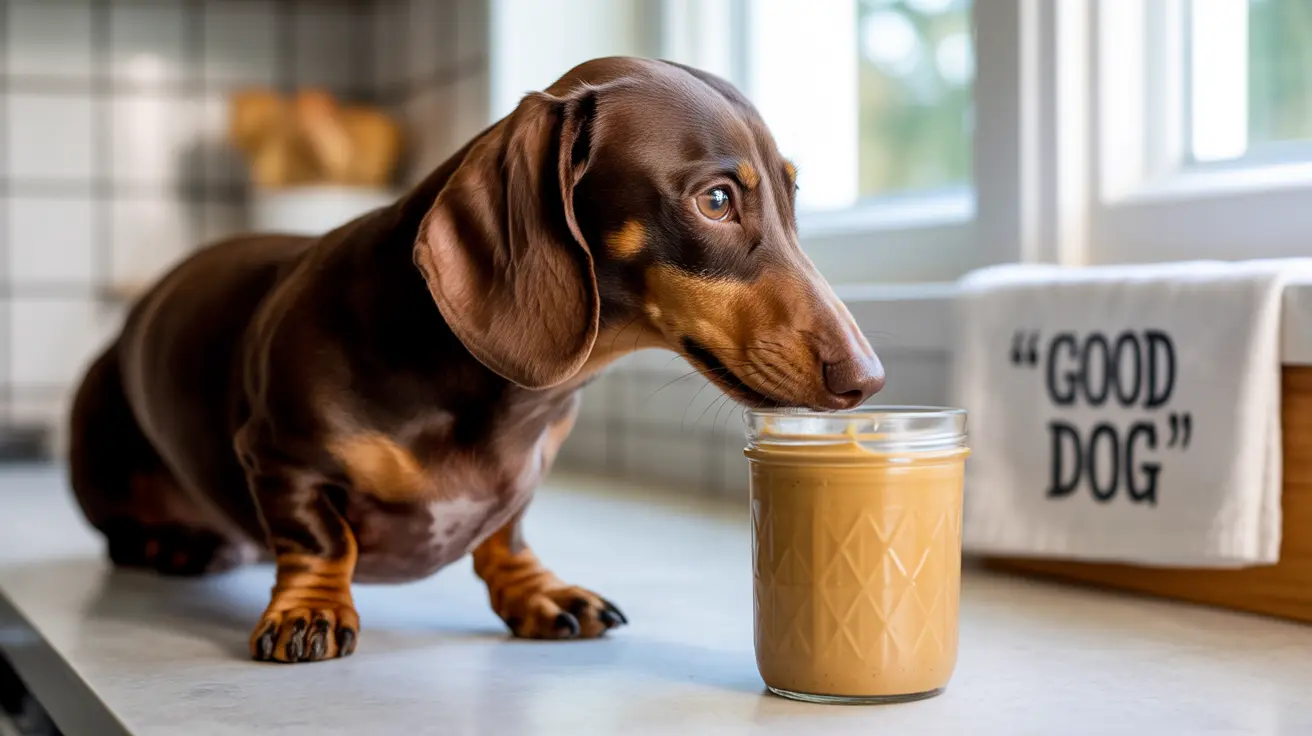While peanut butter is a beloved treat for many dogs, some pet owners may be surprised to learn that dogs can indeed be allergic to this popular snack. Although peanut butter allergies are relatively rare in dogs, affecting less than 1% of the canine population, they can cause serious health concerns ranging from mild discomfort to life-threatening reactions.
Understanding the signs, symptoms, and risks associated with peanut butter allergies in dogs is crucial for responsible pet ownership. Let's explore everything you need to know about this uncommon but potentially serious condition.
Understanding Canine Peanut Butter Allergies
Just like humans, dogs can develop allergic reactions to various foods, including peanut butter. These allergies occur when a dog's immune system mistakenly identifies peanut proteins as harmful substances, triggering an allergic response. What makes these allergies particularly tricky is that they can develop suddenly, even in dogs who have previously enjoyed peanut butter without issues.
Common Signs of Peanut Butter Allergies in Dogs
Skin Reactions
The most common indicators of a peanut butter allergy in dogs include:
- Excessive itching and scratching
- Red, inflamed skin
- Hives or raised bumps
- Hot spots
- Hair loss in affected areas
Digestive Symptoms
Gastrointestinal reactions may include:
- Vomiting
- Diarrhea
- Excessive gas
- Abdominal discomfort
Severe Reactions
In serious cases, dogs may experience:
- Facial swelling
- Difficulty breathing
- Rapid heart rate
- Collapse
- Anaphylactic shock
Diagnosing and Treating Peanut Butter Allergies
If you suspect your dog has a peanut butter allergy, the first step is to immediately discontinue any peanut butter products and seek veterinary care. Your veterinarian may recommend:
- Food elimination trials
- Allergy testing
- Antihistamines for mild reactions
- Emergency treatment for severe reactions
Safe Alternatives and Prevention
For dogs with confirmed or suspected peanut butter allergies, consider these alternatives:
- Plain, pureed pumpkin
- Mashed bananas
- Hypoallergenic commercial treats
- Plain, cooked sweet potato
When introducing any new treat, start with small amounts and monitor your dog closely for any adverse reactions.
Special Considerations and Warnings
Even for dogs without peanut butter allergies, be aware of these important safety considerations:
- Always check labels for xylitol, which is toxic to dogs
- Use only plain, unsweetened peanut butter
- Monitor portion sizes to prevent weight gain
- Consider your dog's overall health conditions
Frequently Asked Questions
Can dogs be allergic to peanut butter and how common is this allergy?
Yes, dogs can be allergic to peanut butter, though it's relatively rare, affecting less than 1% of dogs. The allergy can develop at any time, even in dogs who have previously eaten peanut butter without issues.
What are the signs and symptoms that my dog might be allergic to peanut butter?
Common signs include itching, red skin, hives, vomiting, diarrhea, and in severe cases, difficulty breathing or facial swelling. Some dogs may also experience excessive scratching, ear infections, or hot spots.
How should I treat or manage a peanut butter allergy in my dog?
Immediately stop giving peanut butter and consult your veterinarian. Treatment may include antihistamines for mild reactions or emergency care for severe reactions. Long-term management involves complete avoidance of peanut products.
Is it safe to give my dog peanut butter, and what precautions should I take?
For most dogs, peanut butter is safe in moderation. Always check labels for xylitol, use plain varieties, and introduce new foods slowly while monitoring for reactions. If your dog has any existing health conditions, consult your vet first.
Are there safe peanut butter alternatives for dogs with allergies or dietary restrictions?
Yes, safe alternatives include pureed pumpkin, mashed bananas, sweet potato, or specially formulated hypoallergenic treats. Always introduce new treats gradually and monitor your dog's response.
Conclusion
While peanut butter allergies in dogs are uncommon, they can pose serious health risks when they do occur. Being aware of the signs and symptoms, taking proper precautions, and knowing when to seek veterinary care can help ensure your dog's safety and well-being. If you suspect your dog has a peanut butter allergy, don't hesitate to consult with your veterinarian for proper diagnosis and treatment.






